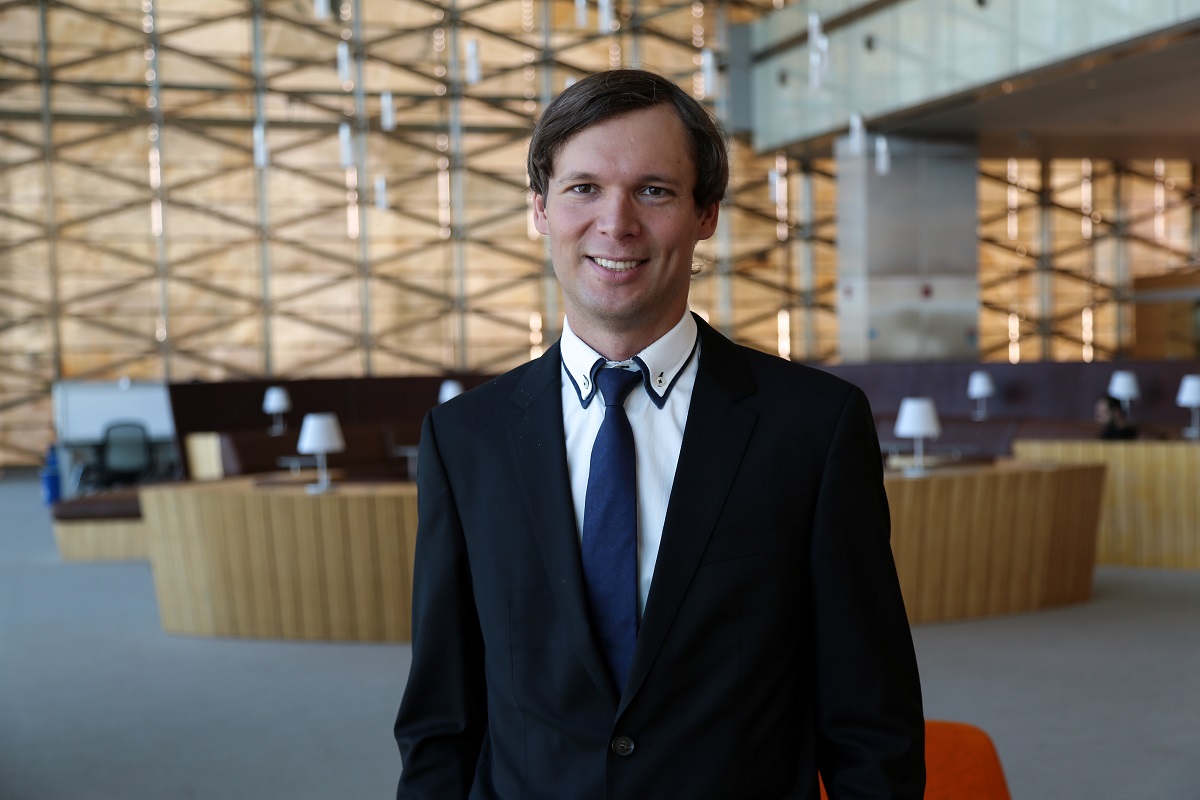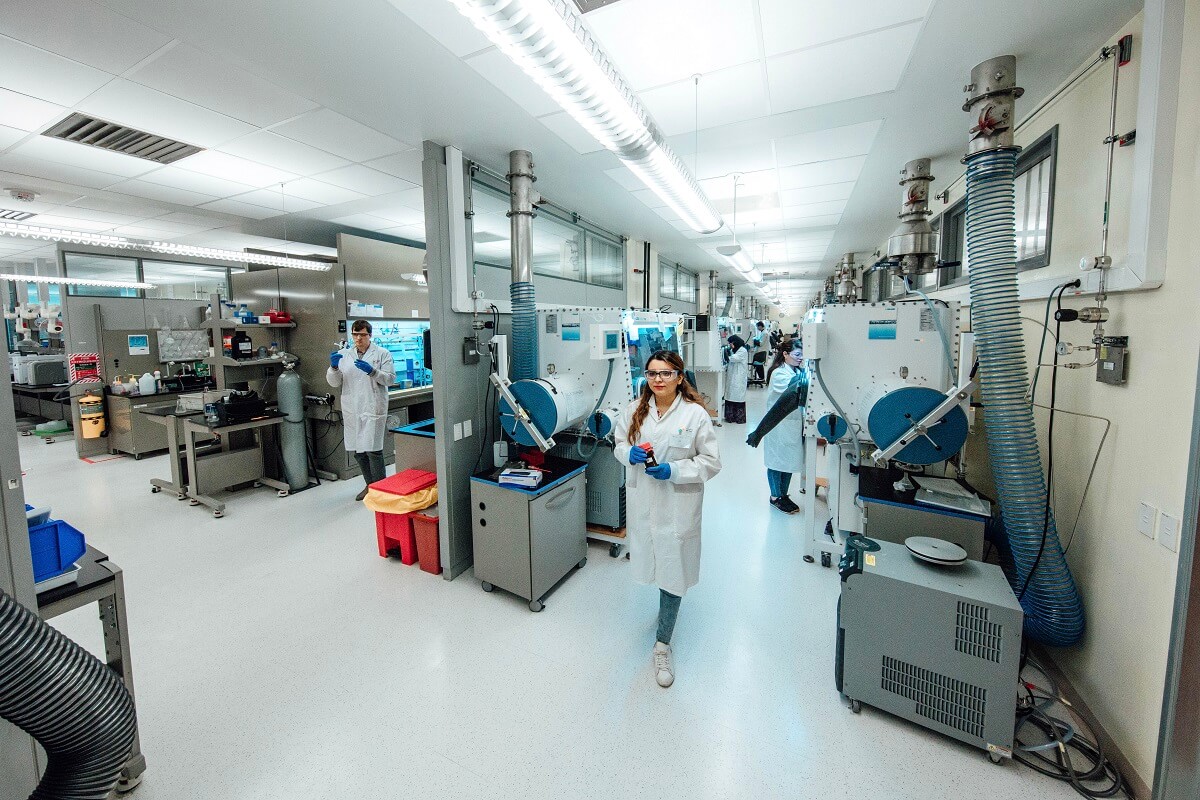Research Scientist Focus: Sergey Kozlov

Research scientist Sergey Kozlov joined the University as a postdoctoral fellow in 2016 after completing his Ph.D. and a postdoctoral fellowship at the University of Barcelona, Spain. Photo by Meres J. Weche.
By David Murphy, KAUST News
KAUST research scientist Sergey Kozlov is a theoretical physicist who first joined the University's Catalysis Center (KCC) as a postdoctoral fellow in 2016. He focuses on using computational chemistry methods to study various solid-state materials with catalytic properties.
"I am interested in exploring new physical and chemical interactions in nanostructured materials, which puts my work [at] the intersection of many disciplines," Kozlov noted.
After obtaining his Ph.D. in computational chemistry from the University of Barcelona, Spain, Kozlov completed a postdoctoral fellowship there and then joined KAUST. After three years of postdoctoral work at the University, during which he worked on challenging projects in collaboration with leading experimental groups from KAUST and abroad, he became a KCC research scientist.
Kozlov's next career move will see him take up a tenure-track position at the National University of Singapore (NUS), where he accepted an offer to join the NUS Department of Chemical and Biomolecular Engineering as an assistant professor.

After working for three years at the KAUST Catalysis Center (KCC) (facilities pictured here) as a postdoctoral fellow, Sergey Kozlov then became a KCC research scientist. Photo by Anastasia Khrenova.
"Having obtained an impressive amount of experience from my research projects at KAUST, I started to look for new challenges such as developing my own research line and applying for my own grants," he said. "I have been applying for tenure-track positions in various top-level and emerging universities, and NUS is one of the best universities in the Asia-Pacific region. It was among my top choices, so I was thrilled when I received an offer to join them."
Uncovering fundamentally new physical and chemical interactions
While at KAUST, Kozlov's research work focused on simulating the chemical properties of emerging classes of catalysts, such as nanostructured alloys, oxidized metals, quantum dots and metal nanoclusters. He hopes that the research he carried out at the University will garner much attention from the in-Kingdom and global scientific community.
"Most of my research is for applications in energy and CO2 utilization technologies. My simulations take into account the quantum behavior of electrons, and so they strongly rely on the power of the Shaheen II supercomputer," he explained.
"With these simulations, I uncover fundamentally new physical and chemical interactions in these materials and how these interactions can be used to improve materials' properties, such as catalytic activity," Kozlov continued. "In the future, I am planning to develop new computational approaches to explore how physical and chemical interactions in nanostructured materials can be used in catalysis, fuel and energy technologies."

KAUST research scientist Sergey Kozlov noted his work at the University strongly relied on the Shaheen II supercomputer. File photo.
Aiding the drive towards a more environmentally friendly society
The development of synthetic fuels is considered one of the foundations in the global transition towards a CO2-neutral economy. Many new classes of nanostructured materials currently act in an energetically efficient fashion. However, Kozlov believes that the research community is in many cases lacking a fundamental understanding of the effects of nanostructuring on the properties of catalysts.
"[This lack of understanding] prevents us from unleashing catalysts' full potential," he said. "By deepening our theoretical understanding of nanostructured materials, I will contribute to the development of the advanced catalysts for a more sustainable and more environmentally friendly society."
Research limited only by creativity
Although he is leaving KAUST for a new chapter in his life in Singapore, Kozlov is adamant that his three years by the Red Sea were a rewarding experience—both personally and professionally.
"I have had a fantastic experience at KAUST both in terms of my professional development and in making new friends," he noted. "My advice to current students is to focus on building your professional network from the very beginning of your career through conferences and collaborations. Your network will bring you the best research ideas [and] the best projects, and it will eventually determine your career."
"KAUST taught me to pursue ambitious [and] risky but highly rewarding scientific ideas with the potential of generating long-lasting impact in the field," Kozlov added. "With the facilities and equipment available [at] KAUST, my research was limited only by my creativity."

